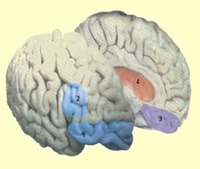Can you find the micro facial expression of emotion in the video below?
A microexpression is an emotional response that often occurs without our conscious awareness and reveals a person’s internal state. It is interesting to see it in an advertising campaign ad.
Click here to view the embedded video.
Take a look at this Faceology article on analytical interviewing. Page three goes into more depth about this particular ad.
Maggie Pazian writes “We do not and cannot exactly know the cause of the microexpression without engaging Dr. Tendler [the woman in the video above] in conversation and probing into the topic that appears to have spurred the emotional reaction but there is still important information that we can glean from seeing a microexpression.
As a side note, the emotion of disgust (as seen in the video above) is one of the seven basic emotions. To learn more about disgust, take a look at this blog article on disgust and disease.
What are your thoughts on this ad as well as microexpression in general?
 Humintell is happy to announce that the “Ask the Expert” series is back, with a fifth edition.
Humintell is happy to announce that the “Ask the Expert” series is back, with a fifth edition. Recognizing facial expressions of emotion is no small task. As simple as it may sound, many people find it difficult to understand how someone is really responding to their words or actions based upon facial expressions that sometimes only last a fraction of a second.
Recognizing facial expressions of emotion is no small task. As simple as it may sound, many people find it difficult to understand how someone is really responding to their words or actions based upon facial expressions that sometimes only last a fraction of a second.